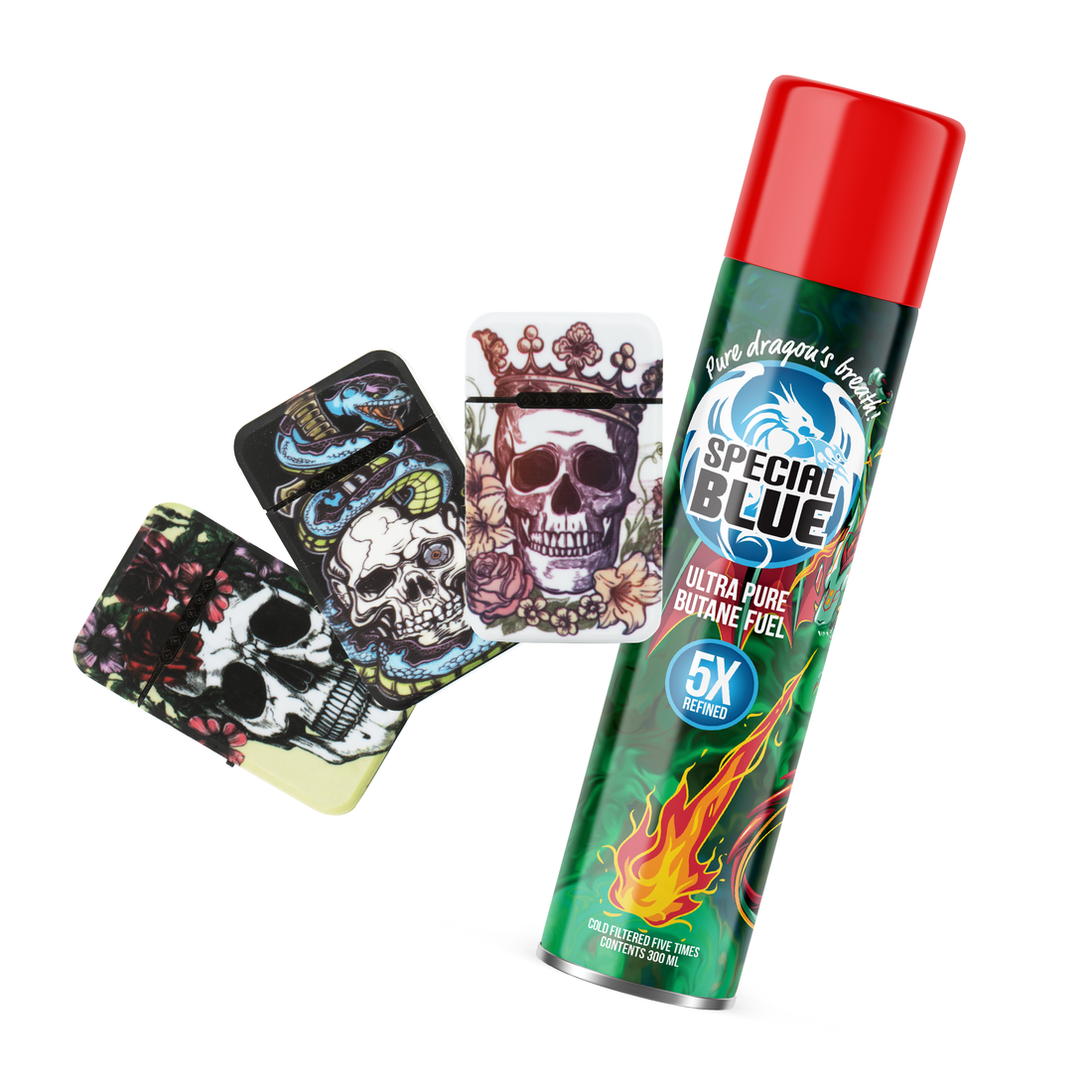When looking at fuel options for lighters and torches you will often see the question, is butane gas the same as lighter gas? While these terms are sometimes used to mean the same thing, there is actually a subtle difference between them. Understanding these distinctions allows a person to make an appropriate selection of the right product for their needs, especially if someone is out to shop for high-quality butane, like options that can be found right here at Special Blue.
What is Butane Gas?
Butane is a hydrocarbon gas used considerably for different forms of fueling. It's clean-burning, odorless, and highly efficient, making it ideal for applications such as:
- Powering portable stoves and camping gear
- Filling lighters and torches
- Serving as an aerosol propellant
Refined butane, such as the Special Blue 9x Butane, is redistilled several times to remove impurities and thus provide a cleaner and more consistent burn.
What is Lighter Gas?
Lighter gas is a general term referring to the fuel used in lighters. Most of the time, lighter gas is butane, but it can also include other gases like propane. The exact composition depends on the type of lighter:
- Butane Lighters: These are the most common and use butane as the main fuel. Butane is utilized because it offers a clean burn and is somewhat portable.
- Propane Lighters: These are less common and are usually used in industry or outdoor torches that require a hotter flame.
Butane is the gas of choice for most consumer lighters and torches due to its safety, availability, and compatibility.
How Are Butane Gas and Lighter Gas Related?
To put it simply: butane gas is often the same as lighter gas, especially for refillable lighters and torches. The main difference lies in terminology. "Butane gas" refers to the pure hydrocarbon fuel, while "lighter gas" is a broader term that could include butane, propane, or a mixture of gases, depending on the specific product.
For example, the Special Blue 5x Butane is marketed as a high-purity fuel ideal for lighters and torches, ensuring efficient and reliable performance.
Why Choose High-Purity Butane for Your Lighter?
The quality of your lighter gas can significantly impact the performance of your lighter or torch. Using high-purity butane offers several advantages:
-
Cleaner Flame: High-purity butane minimizes residue buildup, keeping your lighter or torch clean and functional.
-
Better Performance: Impurities can cause clogs or inconsistent flames, but refined butane ensures reliable ignition and smooth operation.
-
Longevity: High-quality butane reduces wear and tear on your lighter, extending its lifespan.
Special Blue's butane products, such as the Mini 90ml Butane and 9x Superfill, are designed for optimal performance, providing a clean and consistent flame for any application.
Common Applications for Butane and Lighter Gas
Both butane gas and lighter gas are used across a wide range of applications, including:
-
Refilling Lighters: For everyday lighters and specialized torches.
-
Culinary Tasks: Butane-powered torches are popular for caramelizing desserts and searing meats.
-
Outdoor Use: Perfect for camping stoves and portable heaters.
- DIY Projects: Used in soldering and other heat-related tasks.
Choosing the Right Gas for Your Needs
When selecting lighter gas, it’s important to consider the following:
-
Purity Level: Opt for high-purity butane to ensure a clean burn and protect your equipment.
-
Compatibility: Check that the fuel type matches your lighter or torch requirements.
-
Size and Portability: For on-the-go needs, smaller canisters like the Special Blue Mini 90ml are ideal.
Why Butane Gas Is the Gold Standard for Lighter Gas
In most cases, butane gas is synonymous with lighter gas, offering a clean, efficient, and reliable fuel source for a variety of applications. By choosing high-quality butane products like those offered by Special Blue, you can ensure optimal performance for your lighters and torches.
Ready to fuel up? Explore Special Blue’s premium butane options on their Butane Collection Page and experience the difference of high-purity lighter gas.





